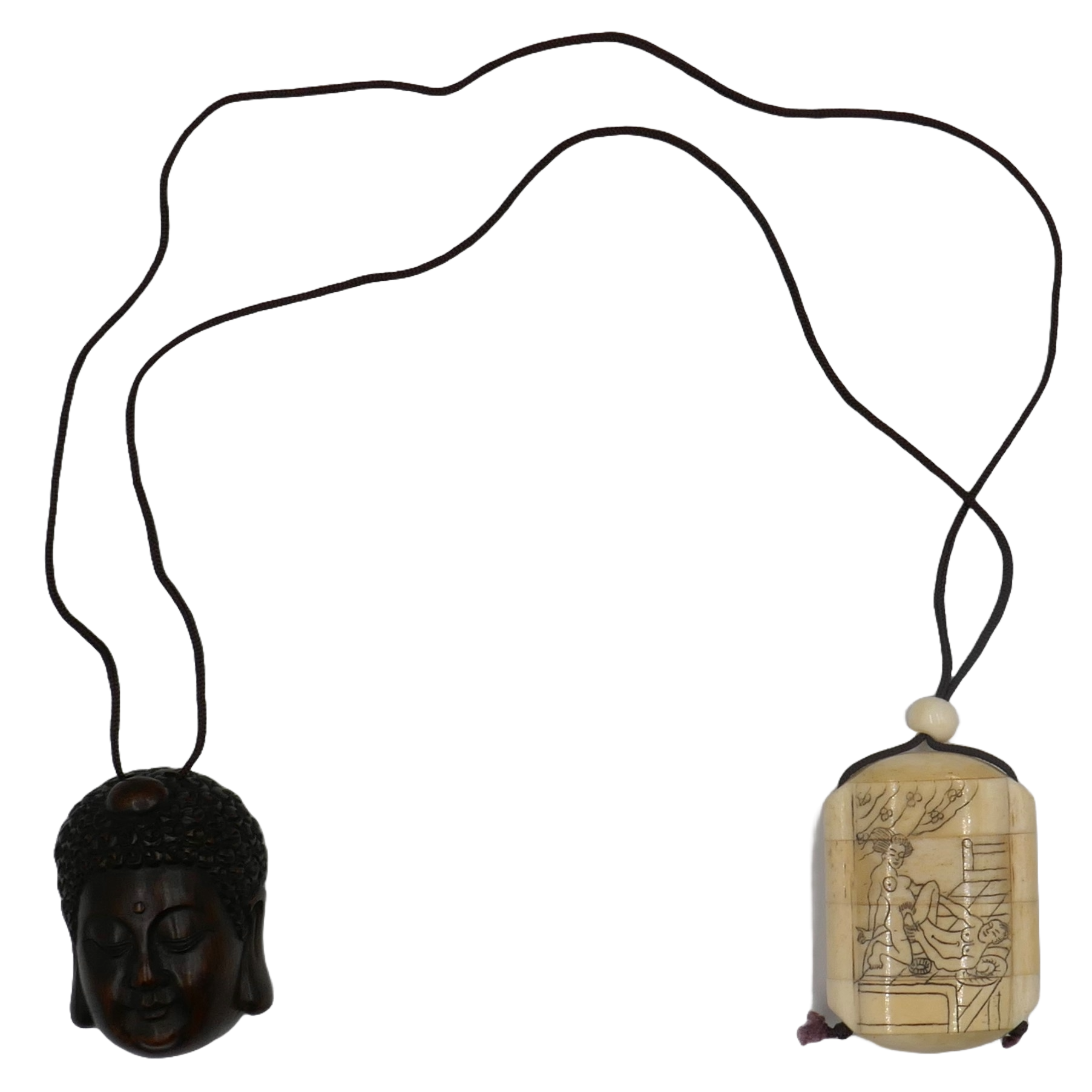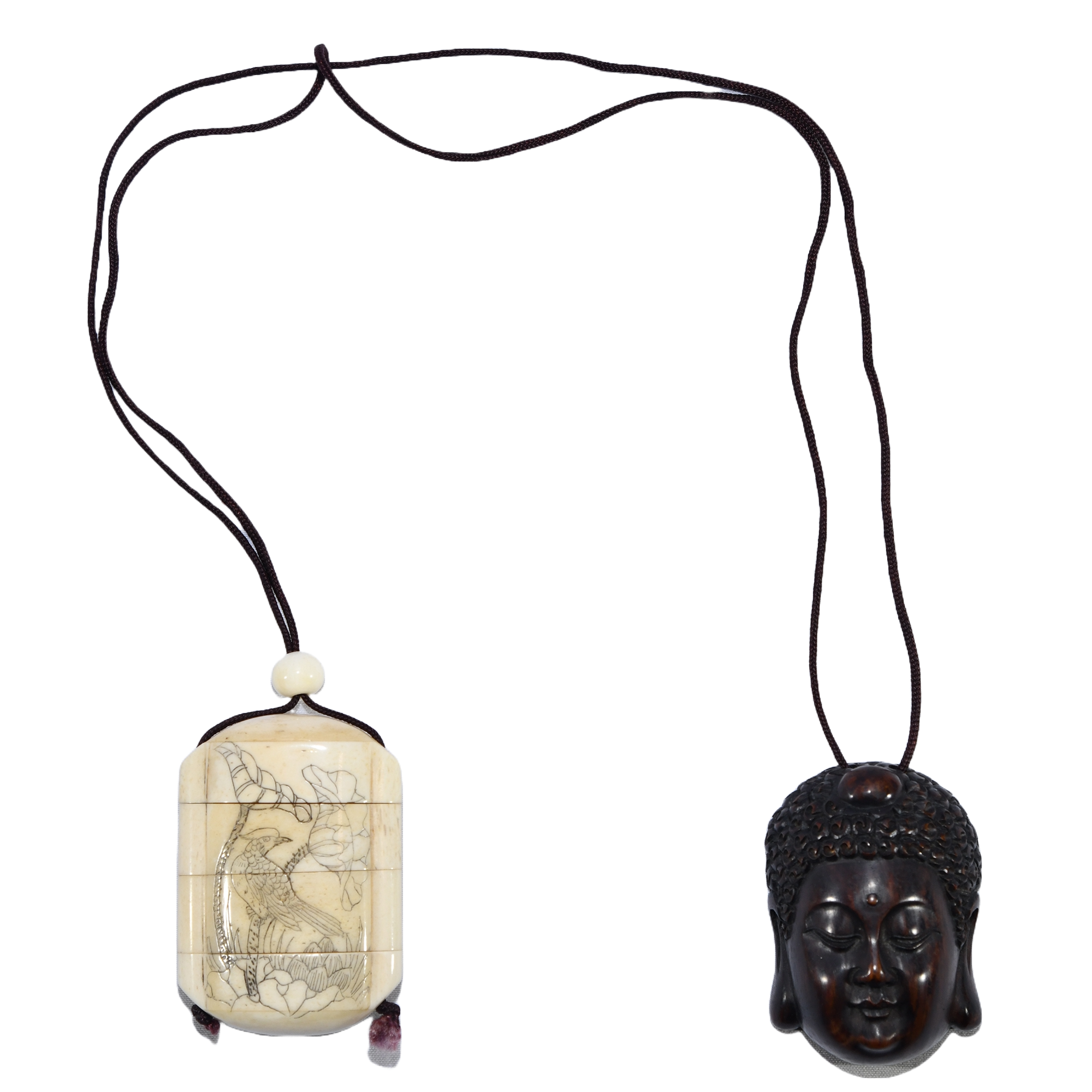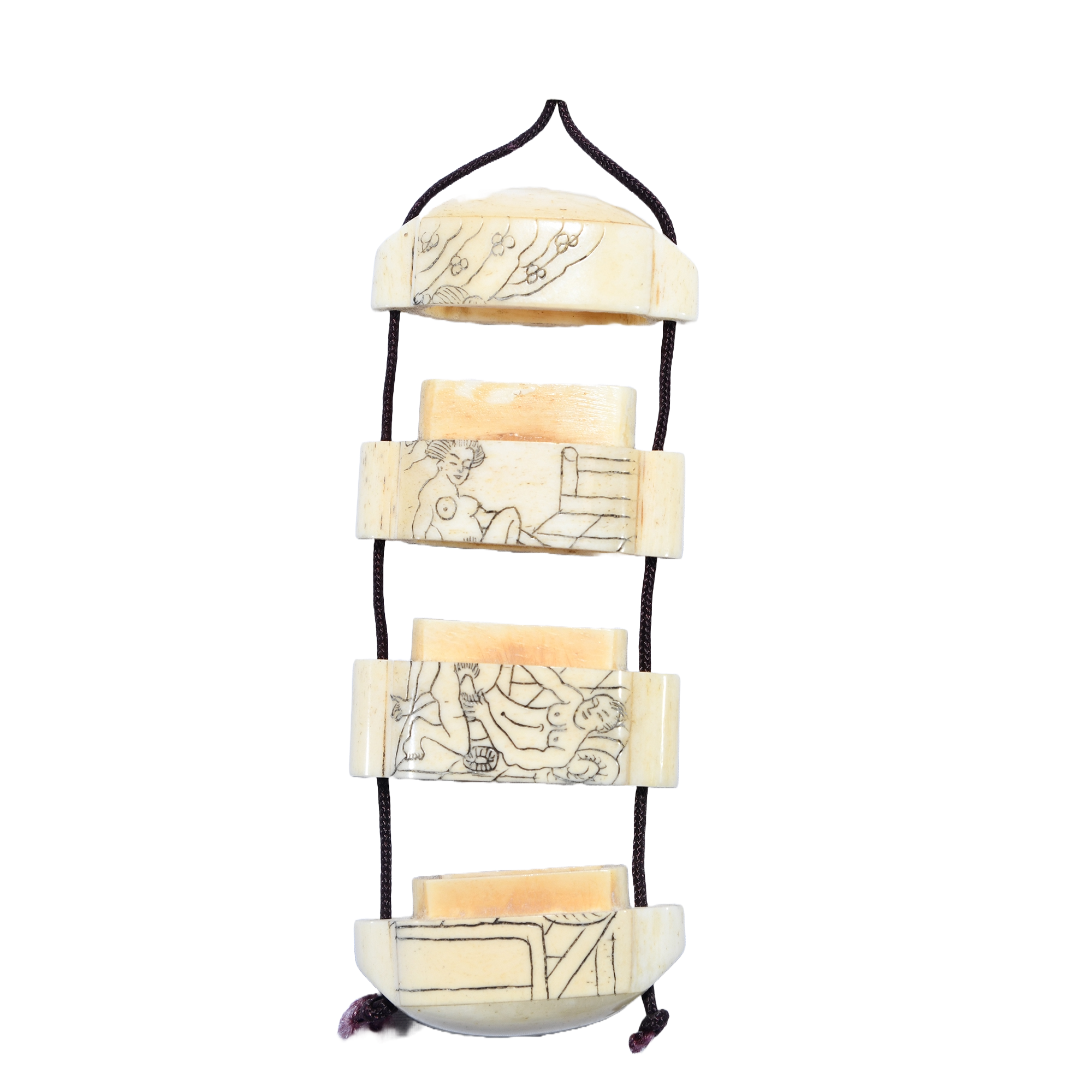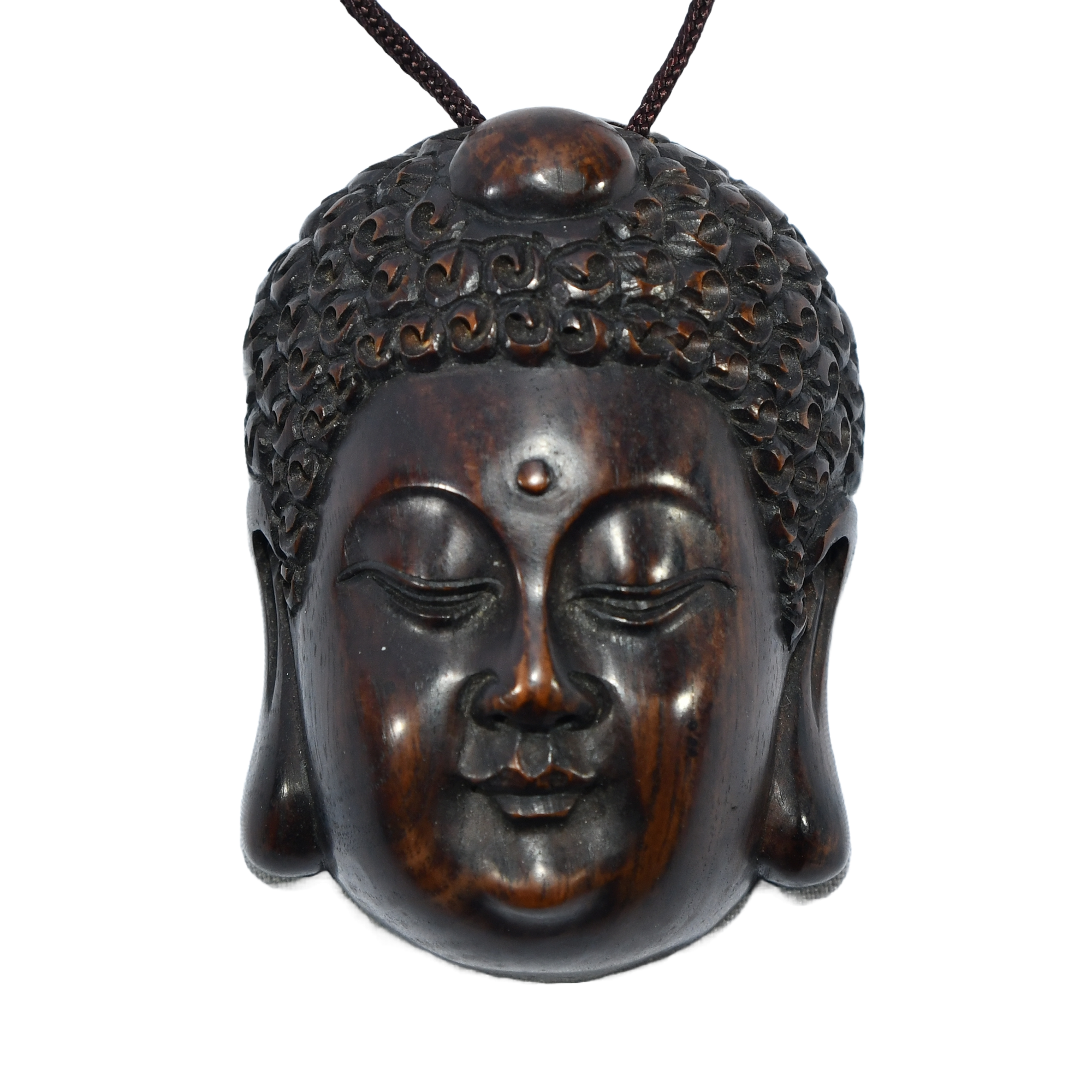Japanese erotic Inro with a Buddha head netsuke
Japanese erotic Inro with a Buddha head netsuke
Date: inro 19th century
Date: Netsuke early to mid 20th century
Geography: Japan
Culture: Japanese
Dimensions: full length with cord 50.5 L inro 5.5cm L 4cm W x 2cm D.
Netsuke 5.2cm L 3.7cm W x 2 cm D.
Weight 73g
Material info bone
Material Netsuke boxwood
Condition is good
The Japanese bone inro, crafted by hand in the 19th century. Its carved bone construction features a design portraying a plague bird on one side and an intriguing erotic scene on the other. The inro serves a functional purpose with its dual compartments, traditionally employed for carrying medicines.
Accompanying the inro is a boxwood netsuke, representing a Buddha head. This netsuke, dating from the early to mid-20th century, showcases exceptional craftsmanship and cultural symbolism.
Both the inro and netsuke were integral components of traditional Japanese dress, particularly the kimono. The inro, suspended from a cord and secured with an A ojime, not only served as a practical container but also as a form of artistic expression. Meanwhile, the netsuke, attached to the cord, added an extra layer of symbolism and aesthetic appeal to the ensemble. Together, these exquisite pieces provide a glimpse into the rich history and intricate artistry of Japanese craftsmanship during the 19th and 20th centuries.
Japanese erotic Inro with a Buddha head netsuke
Date: inro 19th century
Date: Netsuke early to mid 20th century
Geography: Japan
Culture: Japanese
Dimensions: full length with cord 50.5 L inro 5.5cm L 4cm W x 2cm D.
Netsuke 5.2cm L 3.7cm W x 2 cm D.
Weight 73g
Material info bone
Material Netsuke boxwood
Condition is good
The Japanese bone inro, crafted by hand in the 19th century. Its carved bone construction features a design portraying a plague bird on one side and an intriguing erotic scene on the other. The inro serves a functional purpose with its dual compartments, traditionally employed for carrying medicines.
Accompanying the inro is a boxwood netsuke, representing a Buddha head. This netsuke, dating from the early to mid-20th century, showcases exceptional craftsmanship and cultural symbolism.
Both the inro and netsuke were integral components of traditional Japanese dress, particularly the kimono. The inro, suspended from a cord and secured with an A ojime, not only served as a practical container but also as a form of artistic expression. Meanwhile, the netsuke, attached to the cord, added an extra layer of symbolism and aesthetic appeal to the ensemble. Together, these exquisite pieces provide a glimpse into the rich history and intricate artistry of Japanese craftsmanship during the 19th and 20th centuries.
Japanese erotic Inro with a Buddha head netsuke
Date: inro 19th century
Date: Netsuke early to mid 20th century
Geography: Japan
Culture: Japanese
Dimensions: full length with cord 50.5 L inro 5.5cm L 4cm W x 2cm D.
Netsuke 5.2cm L 3.7cm W x 2 cm D.
Weight 73g
Material info bone
Material Netsuke boxwood
Condition is good
The Japanese bone inro, crafted by hand in the 19th century. Its carved bone construction features a design portraying a plague bird on one side and an intriguing erotic scene on the other. The inro serves a functional purpose with its dual compartments, traditionally employed for carrying medicines.
Accompanying the inro is a boxwood netsuke, representing a Buddha head. This netsuke, dating from the early to mid-20th century, showcases exceptional craftsmanship and cultural symbolism.
Both the inro and netsuke were integral components of traditional Japanese dress, particularly the kimono. The inro, suspended from a cord and secured with an A ojime, not only served as a practical container but also as a form of artistic expression. Meanwhile, the netsuke, attached to the cord, added an extra layer of symbolism and aesthetic appeal to the ensemble. Together, these exquisite pieces provide a glimpse into the rich history and intricate artistry of Japanese craftsmanship during the 19th and 20th centuries.









